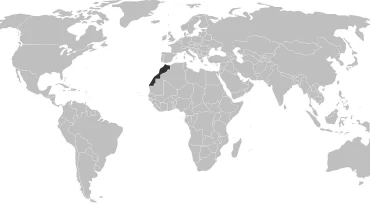On the morning of March 10, 2023, a magnitude 6.5 earthquake struck the High Atlas Mountains of Morocco. The earthquake caused widespread damage in the region, including the collapse of homes, businesses, and mosques. The death toll from the earthquake is still being counted, but it is estimated that hundreds of people have been killed.
In the wake of the earthquake, there has been some debate about whether or not tourists should cancel their trips to Morocco. Some people argue that the earthquake has made the country unsafe for tourists, while others believe that the damage is limited to a small area and that the rest of Morocco is still safe to visit.
Should You Cancel Your Trip?
The decision of whether or not to cancel your trip to Morocco is a personal one. There is no right or wrong answer, and it depends on a number of factors, including your own level of risk tolerance, the specific itinerary of your trip, and the latest information about the earthquake damage.
If you are considering canceling your trip, here are some things to keep in mind:
- The earthquake damage is limited to a small area of the High Atlas Mountains. The vast majority of Morocco is unaffected.
- The Moroccan government has assured tourists that the country is safe to visit.
- The tourism industry in Morocco is a major source of income for the country. Canceling your trip would hurt the local economy and make it more difficult for the people of Morocco to recover from the earthquake.
Ultimately, the decision of whether or not to cancel your trip is up to you. However, if you are still unsure, I recommend contacting your travel agent or the Moroccan Tourism Board for more information.
Moroccan Villages Need Tourists
In addition to the safety concerns, there is also the issue of the impact of the earthquake on the local economy. The villages in the High Atlas Mountains are some of the poorest in Morocco, and they rely heavily on tourism for their livelihood. The earthquake has caused widespread damage to these villages, and many people have lost their homes and businesses.
Canceling your trip to Morocco would only make things worse for the people of these villages. It would mean that they would lose even more income, and it would make it more difficult for them to rebuild their lives.
Marrakech Is Safe to Visit
If you are still planning to travel to Morocco, I recommend that you focus your trip on the major cities, such as Marrakech, Casablanca, and Fez. These cities were not affected by the earthquake, and they are still safe to visit.
Marrakech is a particularly good option for tourists. It is a beautiful city with a rich history and culture. There are many things to see and do in Marrakech, including visiting the Koutoubia Mosque, the Majorelle Gardens, and the Djemaa el-Fna square.
Travel Safely
If you do decide to travel to Morocco, it is important to travel safely. Here are a few tips:
- Stay informed about the latest earthquake news.
- Be aware of your surroundings and take precautions against petty theft.
- Drink bottled water and avoid tap water.
- Get travel insurance that covers medical expenses and cancellations.
By following these tips, you can help ensure that your trip to Morocco is safe and enjoyable.
Conclusion
The Morocco earthquake was a tragedy that caused widespread damage and loss of life. However, the vast majority of Morocco is still safe to visit. If you are planning a trip to Morocco, I recommend that you focus your trip on the major cities, such as Marrakech, Casablanca, and Fez. These cities were not affected by the earthquake, and they are still safe to visit. By following the tips in this article, you can help ensure that your trip to Morocco is safe and enjoyable.



Comment (0)